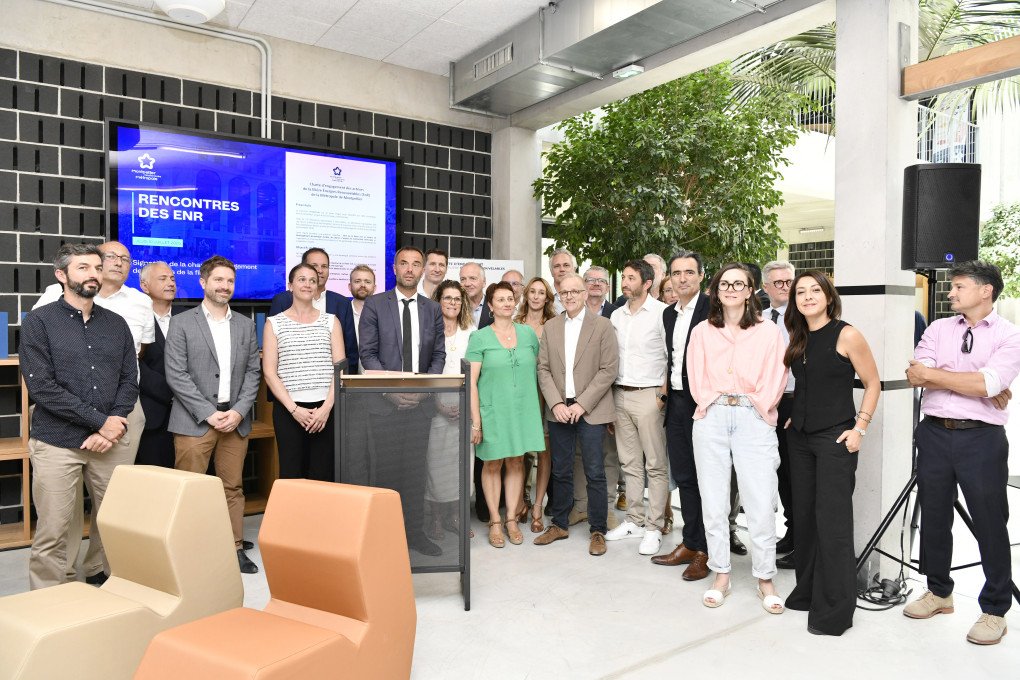The second Renewable Energy Conference, organized by Montpellier Métropole on July 10 at the Halle de l’Innovation facility, once again demonstrated its determination to place Montpellier as the cornerstone for renewable energy in France. Here is a presentation of a strategy that brings together all stakeholders involved in decarbonization.
Montpellier Métropole is seeking to achieve carbon neutrality by 2050. The second Rencontres des EnR (Renewable Energy Conference) event held on July 10 at the Halle de l’Innovation demonstrated this once again.
Coming almost a year after the first Rencontres des EnR conference, this second edition marks another important milestone, bringing together all players in the metropolitan area to sign a charter formalizing a collective vision: to make the renewable energy sector a driver of sustainable economic development, job creation, and regional attractiveness, drawing on a strong innovation ecosystem, solid partnerships, and a dynamic environment conducive to open cooperation. Over the past year, Montpellier Métropole has been very involved with this issue. In September, it joined forces with the SLB and EDF groups to create Henera, the first incubator of its kind in France dedicated to carbon-free energy. Henera is operated by the Montpellier BIC startup incubator. Then, in December, it launched the renewable energy cluster at the Energaïa trade show.
“Renewable energy in our area is a key industry that creates jobs and is extremely important for fighting climate change and regaining our energy sovereignty,” explained Hind Emad, Montpellier Métropole Vice President in charge of Economic Development and Digital Technologies.
The Montpellier metropolitan area benefits from many assets. It is a hub for renewable energy, with 4,500 jobs, 170 companies, and 30 laboratories representing 600 researchers. In addition, though less well known, the area’s potential in terms of geothermal energy is real, representing a local, clean, sovereign, and infinite energy source that does not depend on the weather.
The keynote address at the second Rencontres des EnR conference focused on “Montpellier, a stronghold for geothermal energy.”
“We have a huge source of energy right beneath our feet – geothermal energy – which is renewable, non-intermittent, low-carbon, and requires only a small footprint to harness,” observed Mariane Peter-Borie, Head of R&D and Services at LookUp Géoscience in Montpellier.
Montpellier Métropole is well aware of this resource. In fact, the Le Liner building in Pérols is powered by geothermal energy from probes that is, heat recovery from the subsoil at depths of 50 to 200 meters to heat or cool a building. Thirty-six dry probes were installed. The project, called Écopole, will then be extended to supply buildings in the future commercial zone planned for the area.
Another major project is the Cambacérès business district. ”The production plant was designed to provide energy for 450,000 m² to 500,000 m² of floor space. Here, we are using groundwater geothermal energy with a dual pump/discharge drilling system which actually stabilizes the groundwater temperature in the long term by recycling the extracted water,” explained Louis Rovira, Energy Works Director at Altémed. This project required an operating permit, the first of its kind in the Hérault department.
In addition, around ten heating networks have already been created in Montpellier. ”Geothermal energy is one of the solutions that Altémed considers for each new neighborhood and each project,” added Louis Rovira.
In Baillargues, the Horizon Resort-Massane is another emblematic example. ”31 probes were installed at a depth of 150 meters,” explains Philippe Lesoil, Managing Director of Maïa Énergie, a group that chose Montpellier as its second base for developing projects.
This is because the potential for geothermal energy is encouraging. ”Hydrothermal groundwater is found close to the surface in the Montpellier area. Nevertheless, we still need to characterize the soil in order to optimize the use of geothermal energy and increase production,” emphasized Roger Soliva, professor of structural geology and georesources for energy transition at University of Montpellier.
With both a powerful renewable energy ecosystem and a heat reservoir in its subsoil, the Montpellier metropolitan area is well positioned to achieve the decarbonization targets it has set for 2050. On top of that, metropolitan authorities are committed to getting everyone involved.
This led to the creation of four working groups when the Renewable Energy Cluster was established, with the goal of refining strategy and promoting the creation of sustainable local jobs. The working groups are: Demonstrative and Innovative Metropolis with a focus on the energy mix; Regulatory Issues; Employment & Skills; and the newly added Influence & Attractiveness working group.
The first step: following the decision made at the national level to halt new solar and wind energy projects, which has weakened the sector, Michaël Delafosse and Carole Delga, president of the Occitanie region, co-signed a letter to the Prime Minister to sound the alarm regarding the threat this decision poses to the sector.
A second initiative was launched recently: collecting recent, concrete data from developers on the implementation lead times required for their projects.
“Support from Montpellier Métropole is an added bonus that will accelerate the development of the renewable energy sector in our region,” observed Michaël Delafosse, Mayor of Montpellier and President of Montpellier Métropole. He concluded the second Renewable Energy Conference by unveiling the Charter of Commitment for Renewable Energy (RE) Stakeholders in the Montpellier Métropole area, signed by 27 major players from the ecosystem. Others will sign the Charter at a later date. Montpellier is well on its way to becoming the European capital of renewable energy.

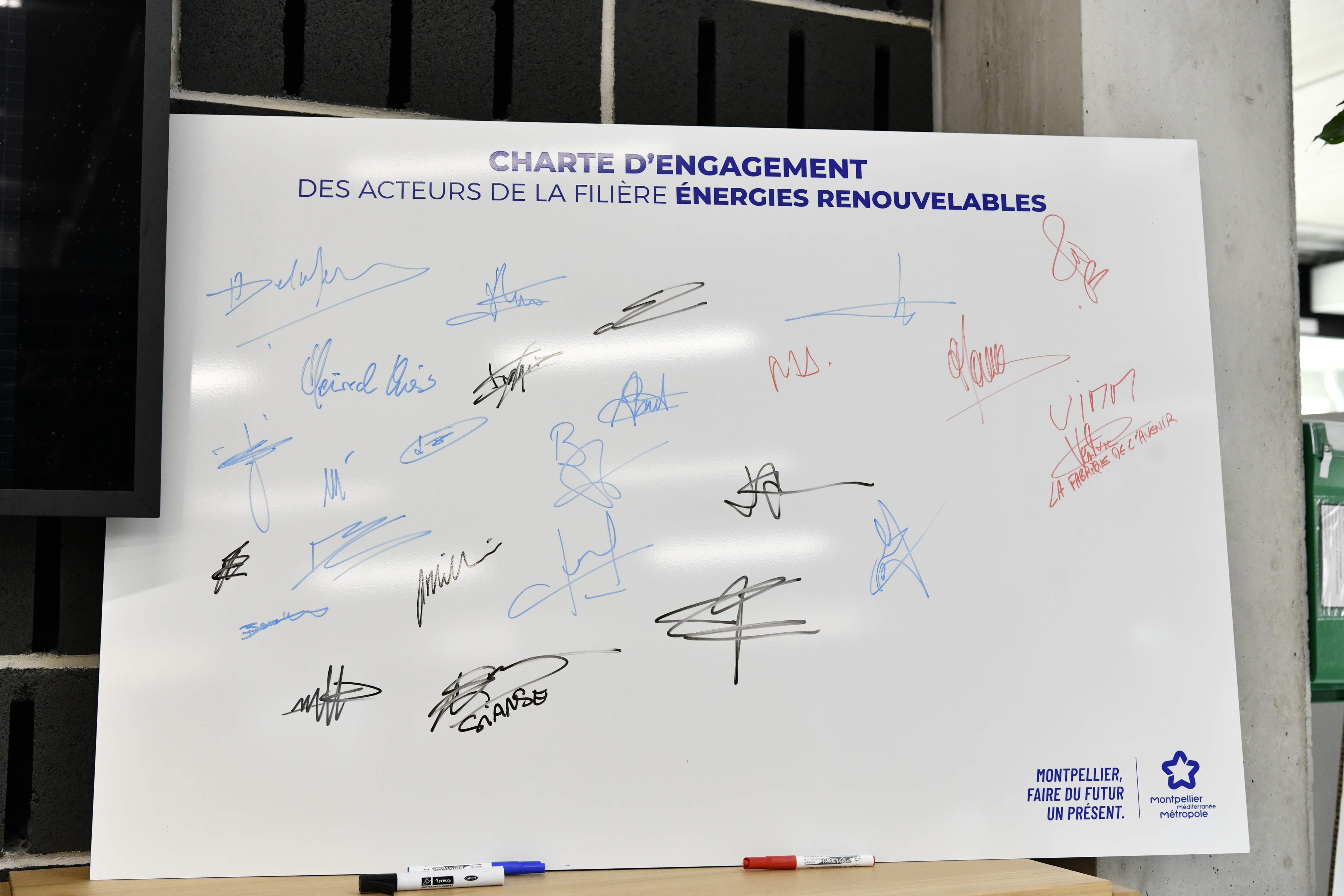
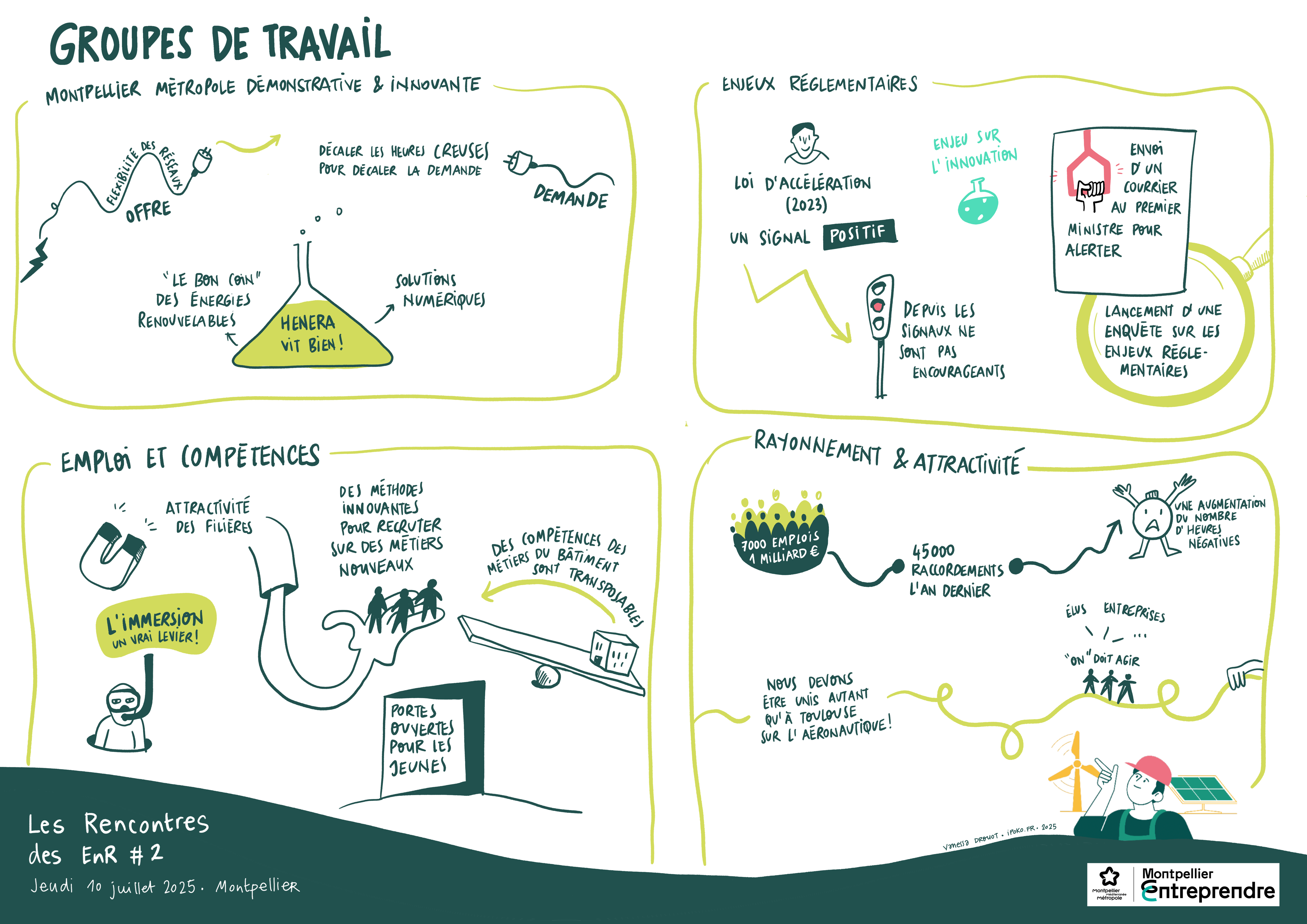
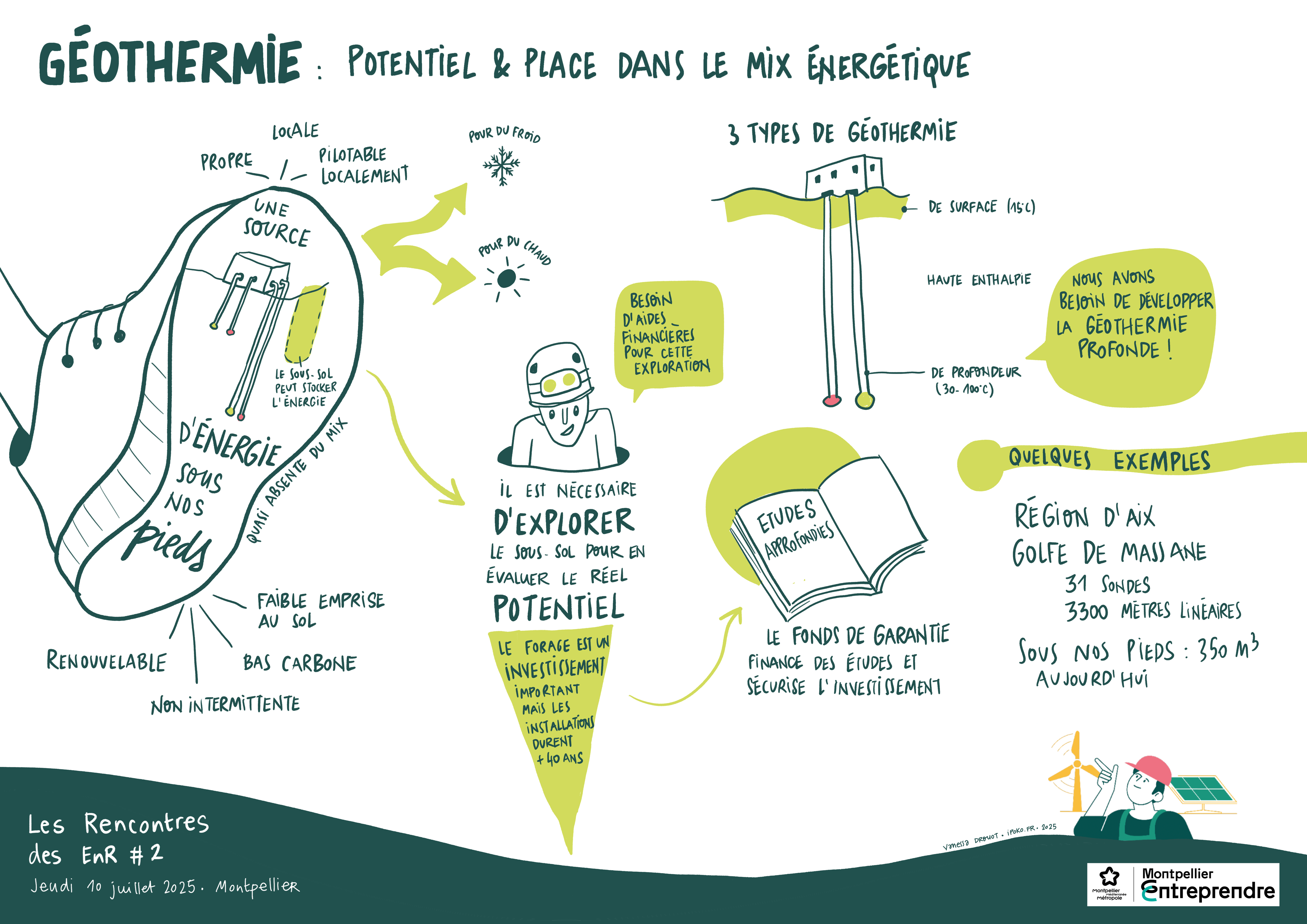
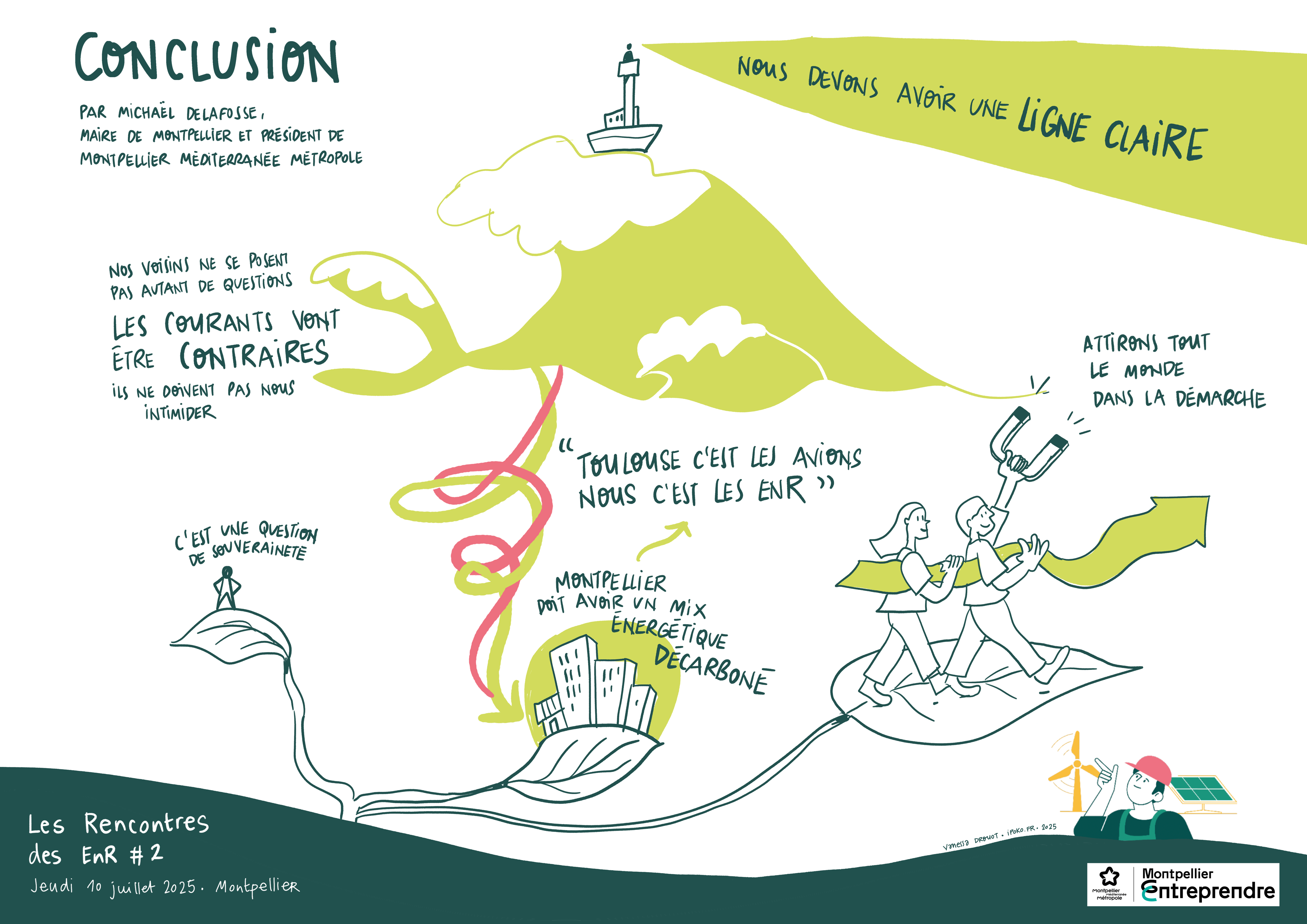
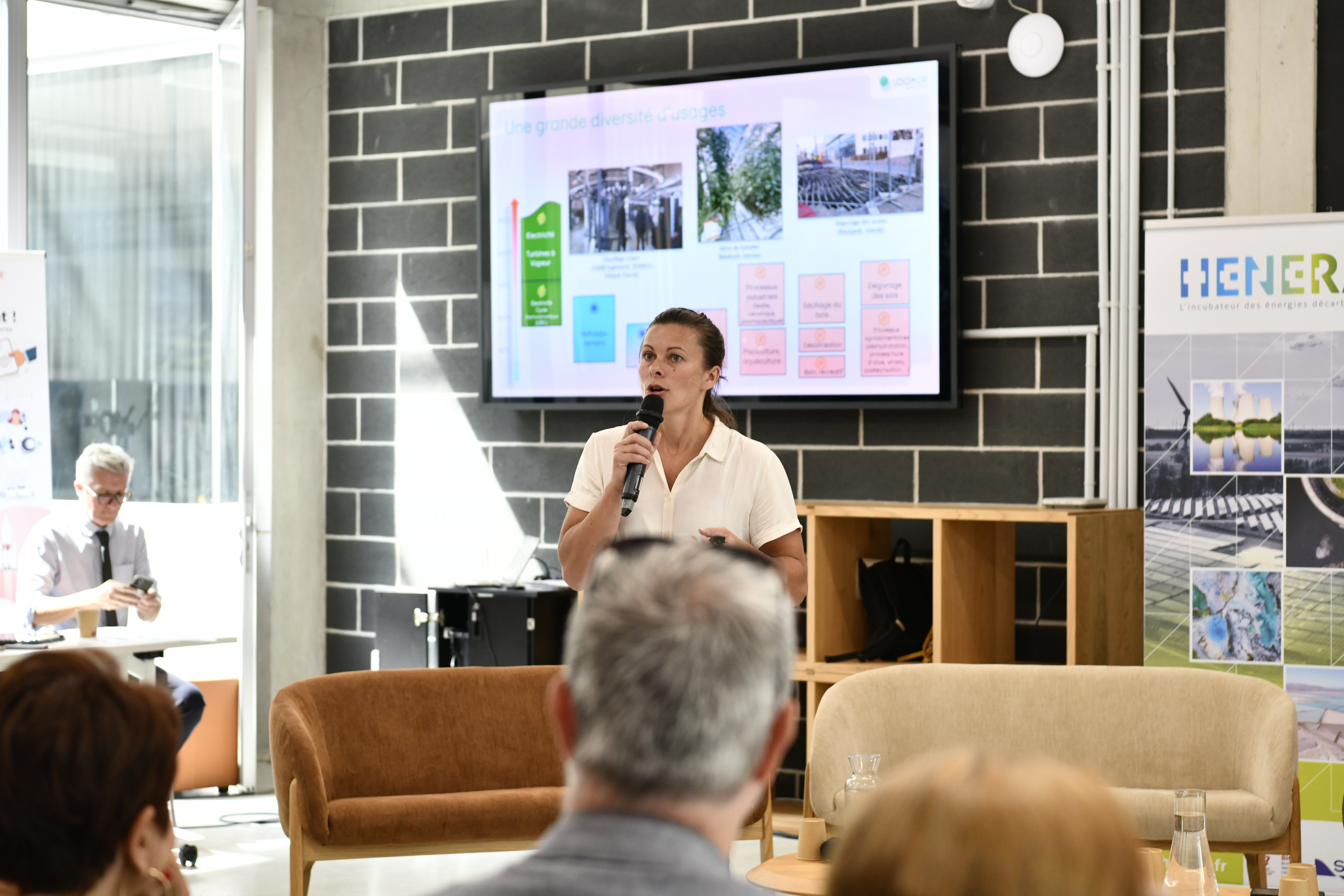
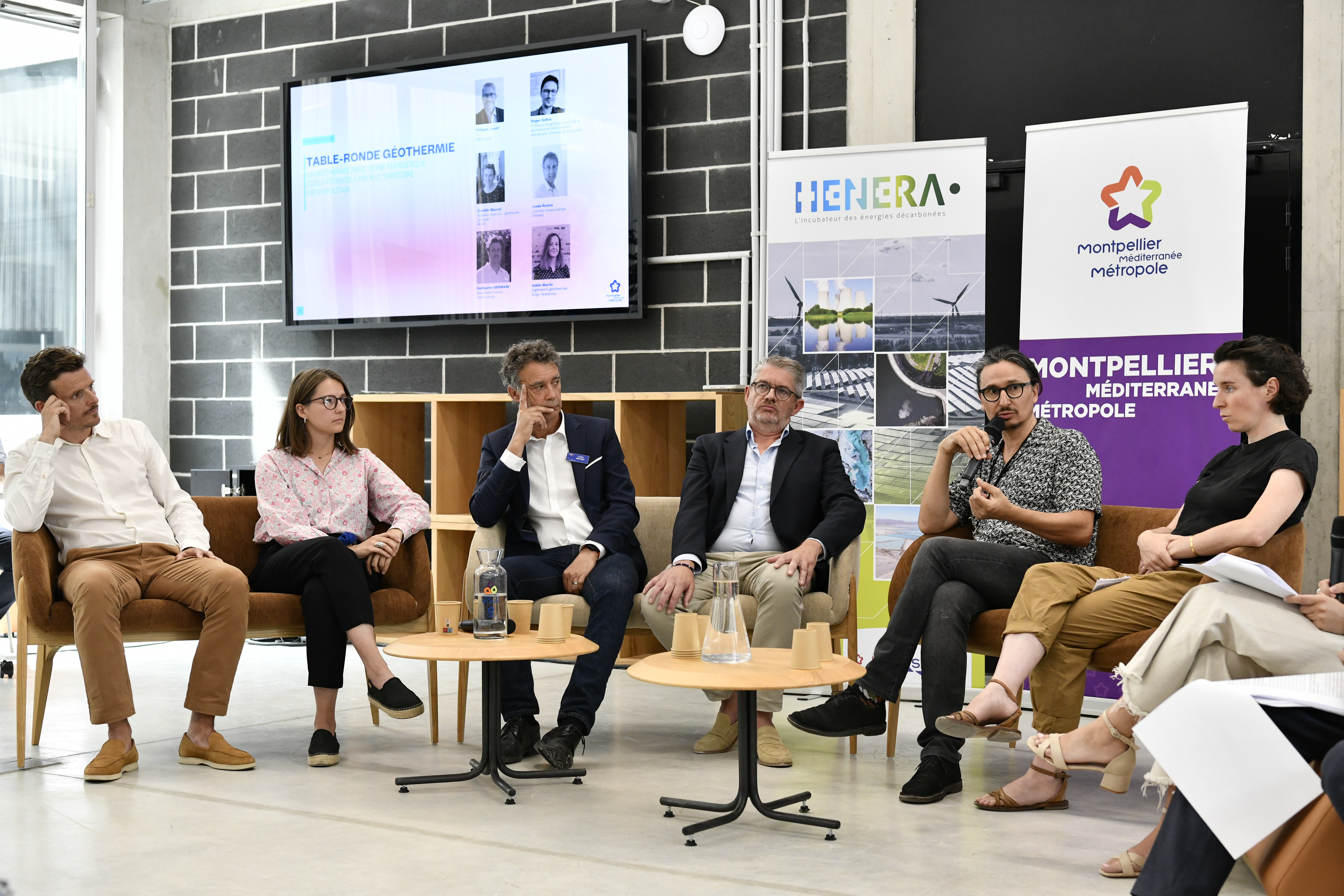
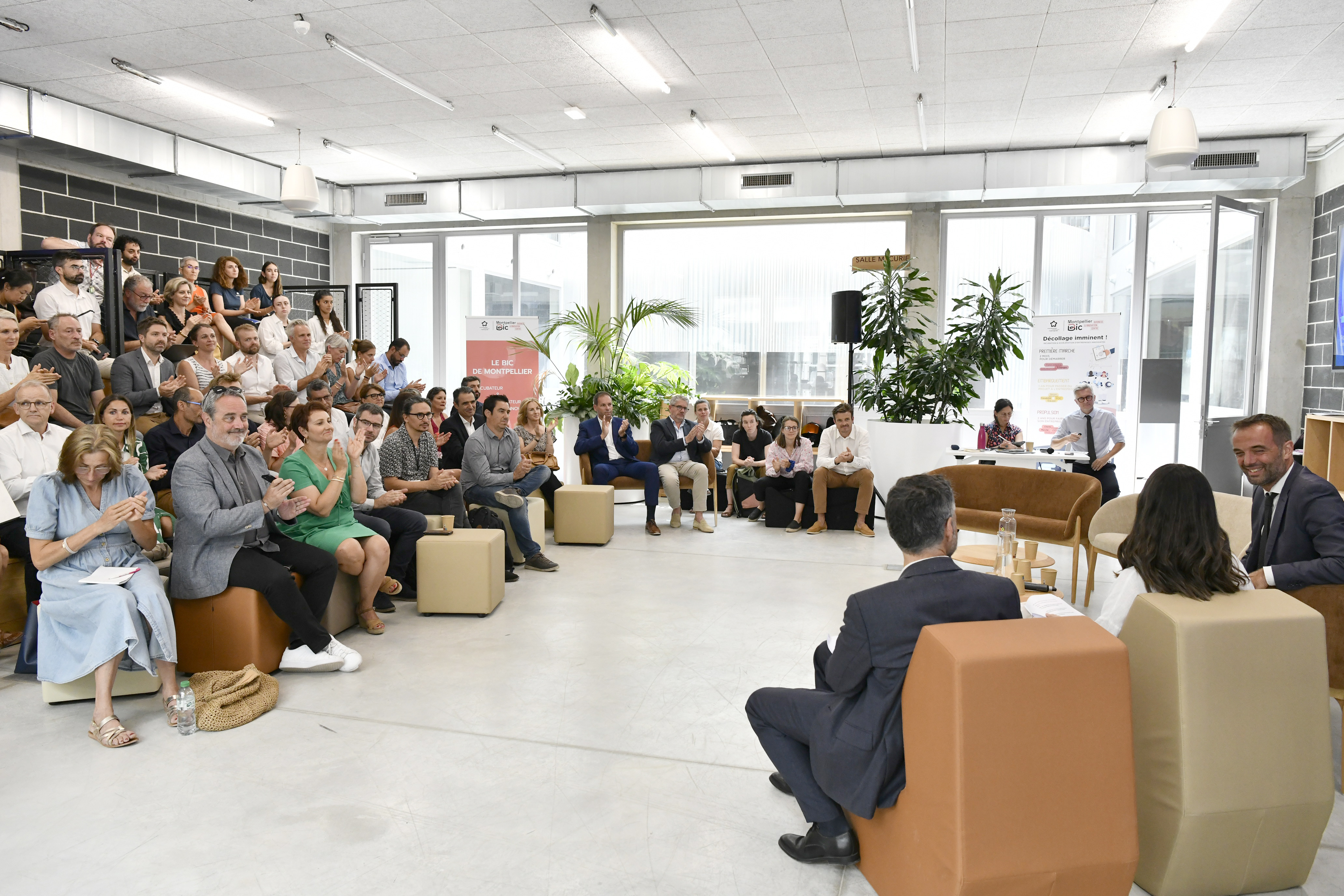
Photos @Cécile Marson
